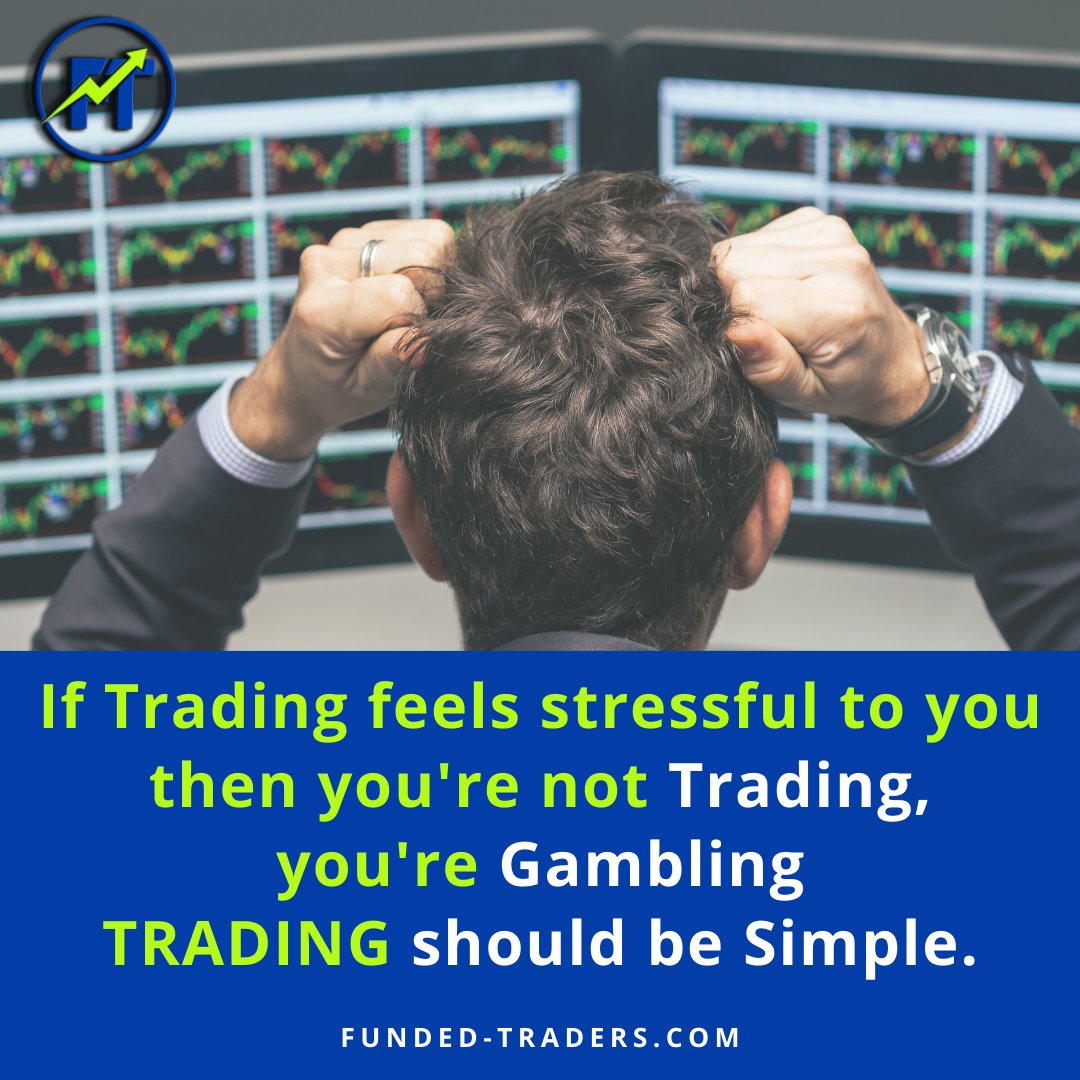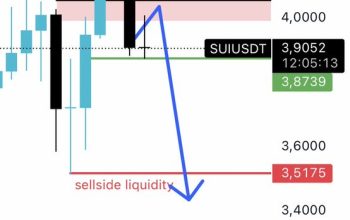The Art of Stress-Free Trading: A Calculated Approach
Imagine trading as a serene lake, calm and unruffled. Now, picture the stress and emotional turmoil that often accompany trading as a storm, churning the waters into a chaotic mess. The key to transforming that stormy lake into a tranquil one lies in adopting a calculated and strategic approach to trading. Let’s explore how to achieve this balance and make trading a more manageable and enjoyable endeavor.
The Emotional Rollercoaster
Trading is often likened to an emotional rollercoaster. The highs of a successful trade can be exhilarating, but the lows of a losing trade can be devastating. This emotional volatility is a significant source of stress for many traders. The first step in managing this stress is to recognize when your trading feels more like gambling than a calculated strategy. If you find yourself making impulsive decisions based on fear or greed, it’s time to reassess your approach.
Recognizing the Signs
Impulsive trading often manifests in several ways:
– Overtrading: Making too many trades in a short period.
– Chasing Losses: Trying to recover losses by making riskier trades.
– Emotional Decisions: Trading based on gut feelings rather than analysis.
The Impact of Emotions
Emotions can cloud judgment and lead to poor decision-making. For instance, fear can cause you to sell too early, missing out on potential gains. Conversely, greed can lead you to hold onto losing positions, hoping for a turnaround that may never come. Recognizing these emotional triggers is the first step in managing them.
The Power of Analysis
Analysis is the bedrock of stress-free trading. By relying on data and trends rather than emotions, you can make more informed decisions. This doesn’t require you to be a data scientist; it simply means using available tools and resources to guide your trading.
Technical Analysis
Technical analysis involves studying price charts and using indicators to identify trends and patterns. Tools like moving averages, relative strength index (RSI), and Bollinger Bands can provide valuable insights into market movements.
Fundamental Analysis
Fundamental analysis focuses on the underlying value of an asset. This involves evaluating economic indicators, company financials, and market conditions. By understanding the fundamentals, you can make more informed trading decisions.
Combining Both
The most effective traders often use a combination of technical and fundamental analysis. This holistic approach provides a more comprehensive view of the market, reducing the likelihood of emotional decision-making.
Keeping It Simple
One of the biggest mistakes traders make is overcomplicating their strategies. The more complex your strategy, the more room there is for error and stress. Keeping it simple allows you to focus on what’s important and makes it easier to stick to your plan.
The KISS Principle
The KISS principle—Keep It Simple, Stupid—is a valuable guideline in trading. By simplifying your strategy, you can reduce the cognitive load and make more rational decisions. This doesn’t mean ignoring important factors but rather prioritizing them and avoiding unnecessary details.
Example of a Simple Strategy
A simple strategy might involve:
– Identifying a Trend: Using moving averages to identify an uptrend.
– Setting Entry and Exit Points: Using support and resistance levels to set entry and exit points.
– Risk Management: Using stop-loss orders to manage risk.
Sticking to Your Strategy
Consistency is key in trading. Once you have a strategy that works for you, stick to it. This doesn’t mean you can’t adjust your strategy over time, but it does mean avoiding making impulsive changes based on short-term market fluctuations.
The Importance of Discipline
Discipline is crucial in trading. It involves sticking to your plan, even when the market doesn’t behave as expected. This discipline helps you avoid emotional decisions and stay focused on your long-term goals.
Adjusting Your Strategy
While consistency is important, it’s also essential to be adaptable. Markets change, and so should your strategy. Regularly review and adjust your strategy based on market conditions and your performance.
The Role of Emotions
Emotions play a significant role in trading, but they don’t have to control your decisions. By recognizing and managing your emotions, you can make more rational decisions.
Managing Fear and Greed
Fear and greed are two of the most powerful emotions in trading. Fear can cause you to miss out on opportunities, while greed can lead you to take unnecessary risks. Recognizing these emotions and managing them is crucial for successful trading.
Techniques for Emotional Management
– Mindfulness: Practicing mindfulness can help you stay present and avoid emotional reactions.
– Journaling: Keeping a trading journal can help you identify emotional triggers and patterns.
– Support System: Having a support system, whether it’s a mentor or a community of traders, can provide valuable perspective and advice.
The Importance of Education
Education is another crucial aspect of stress-free trading. The more you know about the market and the assets you’re trading, the more confident you’ll feel in your decisions.
Continuous Learning
Trading is a continuous learning process. Staying up-to-date with the latest trends, tools, and strategies can help you make more informed decisions and reduce stress.
Resources for Learning
– Books: Reading trading books can provide valuable insights and strategies.
– Courses: Online courses and webinars can help you learn new skills and techniques.
– Communities: Joining trading communities can provide support and advice.
The Benefits of a Community
Trading can be a lonely activity, but it doesn’t have to be. Joining a community of like-minded traders can provide support, advice, and a sense of camaraderie. This can be especially helpful during stressful times, as you can share your experiences and learn from others.
Building a Support Network
A support network can provide valuable perspective and advice. Whether it’s a mentor, a trading group, or an online forum, having a community of traders can help you navigate the challenges of trading.
Sharing Experiences
Sharing your experiences with others can provide valuable insights and help you learn from their mistakes. It can also provide a sense of camaraderie and support, making the trading journey less stressful.
The Future of Trading
As technology continues to evolve, so too will the world of trading. From automated trading platforms to advanced analytics tools, the future of trading promises to be more accessible and less stressful than ever before.
Automated Trading
Automated trading platforms use algorithms to execute trades based on predefined criteria. This can reduce the emotional stress of trading and provide more consistent results.
Advanced Analytics
Advanced analytics tools can provide valuable insights into market trends and patterns. These tools can help you make more informed decisions and reduce the likelihood of emotional trading.
Staying Up-to-Date
Staying up-to-date with the latest trends and technologies can help you stay ahead of the curve. Whether it’s learning about new trading strategies or using advanced analytics tools, continuous learning is key to successful trading.
Conclusion: Embrace the Calculated Approach
In conclusion, trading doesn’t have to be stressful. By adopting a calculated approach, keeping it simple, sticking to your strategy, and letting analysis guide your decisions, you can transform trading into a more manageable and enjoyable activity. Remember, the goal is not to eliminate stress entirely, but rather, to manage it in a way that allows you to make more informed and rational decisions. So, embrace the calculated approach and watch as your trading journey becomes a more rewarding experience.
—
Sources:




